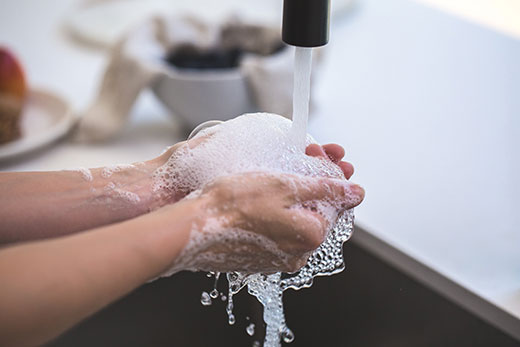
Fears over the spread of Coronavirus are increasing globally and while Americans should certainly be alert to the potential threat, your best defense might just be the most simple, according to experts with Kansas State University Research and Extension.
“If you’re feeling panicked about the coronavirus – or not – go wash your hands,” said Erin Yelland, K-State Research and Extension specialist in adult development and aging. “That is truly one of the best preventative actions we can take.”
The Centers for Disease Control says hand-washing is among the short-list of preventative steps people can take toward COVID-19, the current strain of Coronavirus that is now in the news.
The CDC recommends washing your hands often for 20 seconds with soap and water, avoiding touching your eyes, nose and mouth, covering your mouth with your sleeve or a tissue when coughing or sneezing and seek medical care for any fever, cough or difficulty breathing.
“Preventing sickness from this particular virus is like a lot of other respiratory viruses that circulate this time of year,” said Londa Nwadike, State Extension Consumer Food Safety Specialist. Nwadike’s background is in public health. “The same steps we have taken to prevent getting the flu are important for stopping this virus, as well.”
She says the public should pay attention to reports from the Centers for Disease Control and Kansas Department of Health and Environment.
Reports of coronavirus in the United States are no cause for panic, but it does mean the public should be taking the threat seriously. Experts are encouraging Americans to avoid close contact with people who are sick and to disinfect surfaces and objects that are frequently touched. If you feel sick, it’s recommended you stay home and seek medical care immediately.
Yelland says older adults are more vulnerable to illnesses like the flu, pneumonia, norovirus and coronavirus, and need to take appropriate preventive measures.
“Taking these precautions is something we should be doing every day, not just when there is a global issue. In such institutional settings as nursing homes, the precautions are very much the same: wash your hands, limit visitation from sick family members, and group people who are ill in the same area or wing,” she said.
Citing a recent report in the Journal of the American Medical Association, fatalities from the coronavirus in China was 1 to 2 percent, but it’s closer to 8 to 15 percent in older adults in China. Higher fatality rates are also common in the flu and many other viruses and illnesses among those 65 and older.
The CDC has published a fact sheet to answer additional questions about coronavirus. Those with any doubts on whether they have been sickened by coronavirus should seek medical assistance.
Information in this story was contributed by K-State Research and Extension
